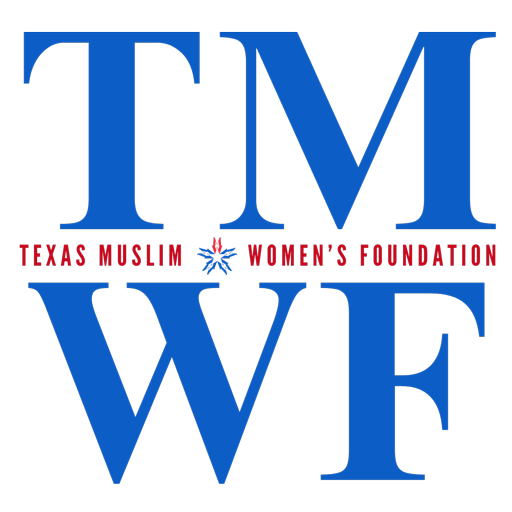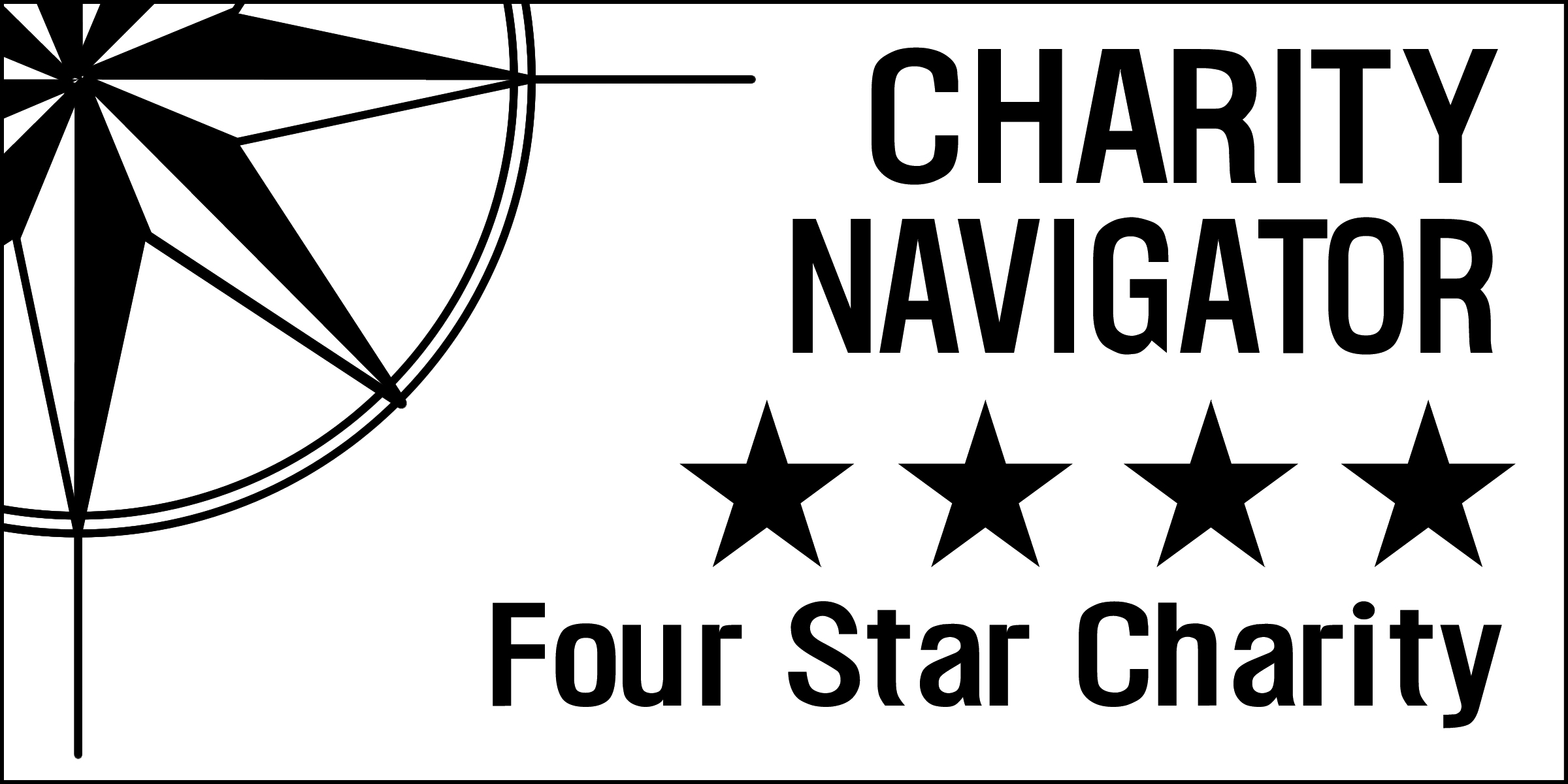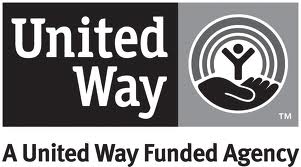All Our Brothers and Sisters
5th Annual TMWF Mother’s Day Luncheon
We would like to thank everyone who joined us at our Mother’s Day Luncheon. Thank you to Rabbi Elana Ann Zelony, Shaykh Omar Suleiman, Rev. Dr. Michael W. Waters. We hope you were inspired by these great panelists as much as we were!

Rabbi Elana Ann Zelony, Rev. Dr. Michael W. Waters,and Shaykh Omar Suleiman
We are honored and blessed that we have such incredible great support! Thank you again for playing an important role in building peaceful communities.
With the theme, “All Our Brothers and Sisters,” the 5th Annual Texas Muslim Women’s Foundation (TMWF) Mother’s Day Luncheon took place on May 4, 2016 at the Glen Eagles Country Club in Plano, Texas. The meeting captured the spirit of what TMWF is achieving within its immediate and extended communities. From the speakers to the guests to the vendors, all are united in voicing one unifying message: we can best succeed if we work together.
TMWF Board Chair, Yasmina BenHalim, first laid out the broad scope of TMWF’s contributions to the community. She reminded us that, “Every day is Mother’s Day…from the moment you set your eyes on that beautiful baby girl or boy, your life long journey begins.” She also recognized and applauded the importance of men and fathers working with and standing up for women and mothers for the betterment and strength of the children and the family unit. “TMWF is involved with [strengthening] the family as a whole. We strive to fulfill our mission statement to empower, promote, and support all women and their families, through education, outreach, philanthropy, and social services. We engage all members of the community: women, men, seniors, and youth. We believe that each individual plays a vital role in fostering peace and wellbeing in the community in which they live.”
The importance of the social services component of TMWF was made quite clear through the second guest speaker, Nishat, speaking on domestic violence. This past March, Nishat’s sister was killed by her husband of twenty years, in Plano, after she initiated a divorce. After killing his wife, he killed himself, orphaning their three children. Nishat candidly and poignantly relayed how her sister did not speak to her about any of her suffering, nor did Nishat see any signs of it as her sister hid her fears. Nishat is more than ever steadfast in her commitment to helping other victims. Her primary advice to victims of domestic abuse is to not be ashamed, but speak out and seek help. To the rest of us, she advises that we encourage open dialogue about any concerns, and continuously reach out to all our loved ones, looking for any signs of suffering in order to intervene before tragedy occurs. She reminds us that domestic abuse is not only physical, but can also be verbal, emotional, and financial. Nishat is now giving a voice to her sister’s tragedy, and hoping that she can influence those suffering in silence to speak out so as to save themselves from a similar fate as her sister’s.

The third presentation highlights a member of the community not often in the public eye but critical in the assistance of those in need of help: the social worker. Adeel Najmi shared a close up look at the life and work of his late mother, Mrs. Qaiser Jahan Najmi, a highly dedicated and compassionate social worker. To honor their mother, her family created The Qaiser Jahan Najmi Memorial Fund and has chosen TMWF as its recipient, to use the funds in whatever areas are in need. The Najmi family felt that TMWF’s mission closely mirrored that of Mrs. Najmi. Among her many contributions in Pakistan, she established an orphanage, a woman’s shelter, and a ladies industrial home, which gave these women an income through the selling of their handiwork in monthly bazaars that showcased their work. These various institutions that Mrs. Najmi helped found are still functioning to this day. It was touching to see, Mr. Najmi, speaking so fondly of his mother’s remarkable efforts and accomplishments. He closed with, “My mother will be remembered for her love of humanity and compassion for the poor and oppressed.”
The family appreciated that TMWF describes itself as Muslim women working for all women, as Mrs. Najmi’s work in Pakistan showed the need for social services is indeed a universal need.
The panel discussions represent TMWF’s outreach to the extended community, in friendship and solidarity with the intent of peace building with those of other faiths. As Dr. Hind said in her introduction of the panelists, “They are awesome representatives of everything that we would like TMWF to stand for: peace, justice, true faith, and respect for all human beings across all ethnicities and all races.” The panelists addressed the need to solidify bonds between different faith communities, as well as, how to deal with discrimination in any context.
The first panelist, Rabbi Elana Zelony of Congregation Beth Torah in Richardson is the first female Rabbi in the Jewish Conservative Movement in the entire state of Texas. Rabbi Elana developed her approach to discrimination and interfaith relations through various experiences throughout her life. Her first encounter with discrimination was in third grade by her classmates who shunned her not being Christian. As she grew older, she was exposed to both positive interest in her identity as well as discrimination.
In college, she was drawn to interfaith work where she was pleasantly surprised to find that others wanted to know about her traditions and she could find out more about theirs. The sharing of traditions not only allowed for an appreciation of differences but also the discovery of clear commonalities between those differing traditions. From college on to rabbinical school, then on to her first experiences as a young female Rabbi, and then on to motherhood, Rabbi Elana encountered many forms of discrimination. She was either too Jewish or too female. However, she came to realize that if she tried to assimilate, by either being less Jewish or more male, she would be pretending to be something that she was not. Rabbi Elana explains that she had to be true to herself acknowledging that “the problem with assimilation is that everyone loses out; if I’m not willing to share the wisdom from my tradition then that piece of wisdom is missing from the world.” We must reach out and help others see that we are all the same in the sense that we are all valuable.
The next panelist was Reverend Dr. Michael Waters the founder and senior pastor of Joy Tabernacle African Methodist Episcopal (A.M.E.) Church in Dallas. Reverend Waters spoke specifically about discrimination against African Americans.
Their ongoing struggles highlight how hate and violence lead to many difficulties and tragedies. Dr. Waters spoke about two of the worst terrorist attacks by white supremacist against predominately black churches in recent times: the 1963 bombing of the 16th Street Baptist Church in Birmingham, Alabama, and the 2015 mass shooting at the Emanuel African Methodist Church in Charleston, South Carolina. In both tragedies, the majority of those killed were female. Dr. Waters noted that “women and girls are at the forefront in the fight for justice and liberty both at home and abroad” and that “we share tears with those who have lost, [but] we often forget the pain felt especially by women and girls.” Both of the above-mentioned incidents led to some positive change, albeit very tragically brought about. The 1963 attack was climactic in a series of previous attacks as it highlighted the need for the passing of the Civil Rights Act of 1964. The 2015 attack highlights many points including that racial discrimination has not gone away in the 21st century in the United States of America where democracy and the pursuit of happiness should be a right for all its citizens.
Rev. Dr. Waters has met some of the family members of those women who were massacred. Their advice was to “turn pain into purpose…to ensure that others do not go through the same painful experience.” He also advises that we need to be aware of our history, including the history of all the communities that make up our country. We must educate ourselves and our children so that we do not take for granted the sacrifices of others who have given us the freedoms we enjoy today. We must have continuous conversations, not just on special occasions, and we must note the freedoms we have in “common spaces…[such as when we] cast a ballot or enter from the front door.” The Reverend ended with a convocation of hope, “Every season of darkness, every season of oppression, every season of marginalization we have ever faced, it is our work together and it is our faith in God that has given us the power to overcome. I pray this same faith and this same power be yours today, now, and forever.”
The Islamic scholar, Sheikh Omar Suleiman, the director of the Islamic Learning Foundation of Texas and Resident Scholar at the Valley Ranch Islamic Center in Irving, Texas was the last panelist. Sheikh Omar described how he dealt with discrimination as he was growing up in New Orleans, Louisiana, the son of Palestinian immigrants. Because of his Muslim, Arab, and American identity, many people were not sure how to label him. He was often asked, “Where are you from?” Growing up in New Orleans, he saw and related to the discrimination faced by his African American neighbors as he witnessed Ku Klux Klan rallies. His experiences growing up showed him that racial barriers are “artificial and superficial,” and “it is the soul that defines a person.”
Sheikh Omar is steadfast in his belief that different faith communities uniting can “end the common ills and flaws of society.” He cited his work with the field group Muslims for Humanity that was helping the victims of Hurricane Katrina. Through their efforts with multiple other faith groups they all showed that “adversity brings people together in a way that prosperity cannot…when we are too comfortable, we are too idle and we don’t do anything to bridge those gaps.” He also noted that through adversity, what race or faith a suffering person was did not matter—all that mattered was getting through the adversity safely together.
In normal times, Sheikh Omar, advises us to see the human side of others, because “the more we humanize one another, the less we will discriminate against one another.” He sees bigotry as “a disease of the heart not the intellect…[whereby] good character and human interaction…[can remove] the locks from our hearts.”
Sheikh Omar asks us to have “genuine interaction on a very human level…talk about your life, your family, etc.” Have a continuous conversation on a regular basis to form strong and genuine bonds. He warns us that the devaluing of human life is pervasive in our contemporary society, so we must recommit to breaking down barriers that lead to hate and violence. And he notes that it is this devaluation of human life that leads to both domestic violence and terrorism. We must be part of the solution. We must “fight divisiveness and rhetoric that results in death of people.” Sheikh Omar concludes with a quote from the Qur’an, “Whoever saves one life, it is as if he has saved all of mankind, and whoever takes one life, it is as if he has killed all of mankind.”
The panel discussion could be summed up as encouraging everyone to get involved and reaching out to others to try to build bridges of peace for all peoples to benefit from. The faith leaders stressed going out beyond our religious communities, by opening up our places of worship and opening up our homes. We must also serve wherever there is a need and there is an opportunity to serve and collaborate for “the betterment of society and the purging of common evils.” Additionally, we should not allow people of bad character to teach us bad character; instead we should reach out further with compassion and a smile to create genuine bonding and true understanding of one another.
The vendors at the event support TMWF by giving a portion of their profits from their sales during the event to the organization. They also support the organization as community members. Salma Husayni of Moda Designs Jewelry is a former TMWF vice president of programs and events coordinator. She praises TMWF as working for “a good cause, with a good mission, and with good people.” In keeping with TMWF’s mission to empower women, two other female entrepreneurs, Sairah Rasheed of Steel Paisley (which produces home furnishings, accessories, and apparel) and Kawtar Idrissi of Tizirii Moroccan Argan Oil Products (for Hair, Nails, and Skin) both work with international artisans and farmers for their products.
Another organization in attendance with a mission to empower women was The Ladies of Austin. One of their organization’s members, Mouna Hashem describes it as, “a social club with a charity twist” based in Austin, Texas. They sold products at the luncheon that support and fund Syrian refugees living in camps in Turkey and Jordan. Women in the refugee camps make the products, which include hand made scarves, table linens, bottle holders, hot water bottle covers, dolls, and other items. Some of the proceeds also go to a school in Turkey serving 400 Syrian refugee children.
Many of the guests at the TMWF luncheon expressed similar sentiments to the speakers and the vendors and showed that they truly understand the spirit of the organization. When one guest, Zeinab Ellam, was asked why she is involved with TMWF, she said, “Life is good, so help wherever you can.” Another guest, Dr. Shah said that he appreciates how TMWF takes up “women’s causes and helps a lot of people.” Zain Ali applauds the efforts of the women’s shelter because it “fills the gap and fulfills the need” of the community; additionally, the counseling “helps people get back on their feet.” He also praises the youth program as having a very positive influence on his own children.
Jan Robinson, a TMWF guest and member of Zonta International, the global organization that empowers women through service and advocacy, said, “we are ‘professional do-gooders.’” She looks forward to starting a relationship with TMWF as they are working in the same vein. Dr. Harryette Ehrhardt of Peacemakers Incorporated, an organization that “empowers peacemakers, locally and globally, through education, communication, and action” said she is very excited to get to know about TMWF. Her impression of the luncheon was, “I want many to know you and know more about you. It shall be my pleasure to pass the message along. I am so proud of what you stand for. I am so proud of what you are doing. I am so proud that you and I live in the same community. Thank you for being a gift to us.”
Some of the TMWF staff interviewed highlight which of their passions motivated them to get involved TMWF. Shafaq Ahmad, the resident artist and the Islamic Arts Revival Series (IARS) juried art exhibit director, enjoys the concept of IARS as a support organization for TMWF’s vision of community building through the arts and interfaith outreach. Mahmuda Hossain, TMWF Vice Board Chair, says “It’s a great organization of hard working people from the staff to the board to the volunteers.” She wants to get the word out to everyone to “Come join us so we can grow together to perfect us and all the community!”
Shared from guest Sameena Karmally –
“Great program at the 5th Annual Mother’s Day Luncheon hosted by Texas Muslim Women’s Foundation, hearing from Elana Ann Zelony, a woman rabbi in a conservative synagogue describe her encounters with discrimination, Michael W. Waters, a Methodist pastor reminding us that women are always on the front lines and disproportionately affected by violence, and Omar Suleiman a muslim imam decribing how faith communities came together to rebuild after Hurricane Katrina. Very inspiring!”


